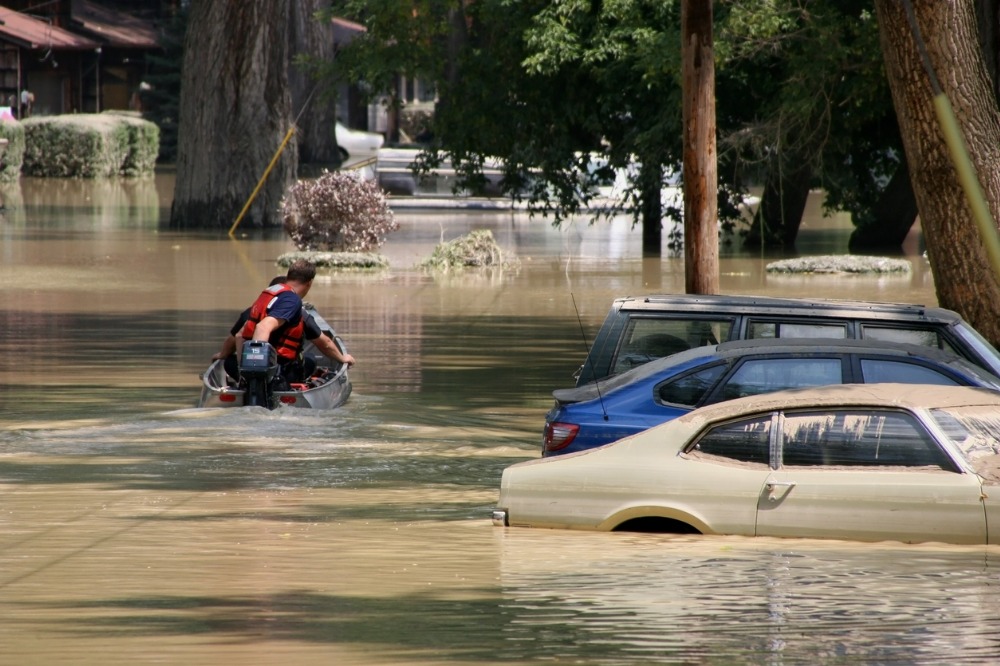IBC eyeing two years, not three, for national flood program rollout

“The government needs to stand up a new organisation, or expand the Canadian Mortgage and Housing Corporation, to administer it. It’s going to take some time to figure out what that is going to look like,” he told Insurance Business.
“They also need to secure agreements with the provinces. But we’re hopeful, based on our conversations with them, that this all can be done within two years.”
Following #Budget2023, Celyeste Power, President & CEO, IBC, shared the following statement: “IBC welcomes the federal government’s leadership on Canada’s first National Flood Insurance Program” https://t.co/f4WifQaydr #CDNPoli pic.twitter.com/Wwi5x1J1ya
— IBC (@InsuranceBureau)
The Trudeau government announced funding to establish Canada’s first national flood insurance program in its 2023 budget on Tuesday (March 28).
It has allocated $31.7 million over three years to stand up the program, which will focus on protecting Canadians in high-risk flooding areas who cannot obtain affordable insurance. It will consider damage from storm surge, riverfront flooding, and urban overland flooding.
Over 1.5 million households are highly exposed to flooding, according to data from Canada’s task force on flood insurance and relocation.
Challenges to rollout
Stewart acknowledged that there might be challenges in securing unanimous approval for the flood program across the country.
“It’s possible that some provinces may not wish to participate, and that will complicate the rollout. But we think that a timeline of two years recognises that reality,” he said.
The IBC has long called on the government to prioritize funding for a national high-risk flood insurance program, calling flooding Canada’s greatest climate-related risk.
Stewart said the industry wants to work in close partnership with the government to shape the program.
“Given the complexities of the Canadian Federation, the only way that it could work is if it was government-led. Insurers do not carry high risk areas on their books,” he said.
“So, it’s important to us that government maintain the responsibility for poor land use planning decisions of the past and back the program.”
Speaking exclusively to Insurance Business Canada, Desjardins president and COO Valerie Lavoie hailed the new program.
“It’s great news for all Canadians because extreme flooding events are becoming more and more frequent, and insurers cannot take all the risk on their shoulders,” Lavoie said.
Lavoie revealed she personally wrote to Prime Minister Justin Trudeau and Deputy Prime Minister Chrystia Freeland to emphasize the need for an affordable flood insurance program for Canadians.
“We’ll continue to work with the IBC and the government to push for this program for the well-being of all Canadians,” she said.
Steps toward flood resiliency
Canada now joins the United Kingdom, United States, and other G7 countries in standing up a government-backed insurance program in partnership with the property and casualty (P&C) insurance industry.
The new program is part of a package of measures to address flooding protection gaps, including the creation of a flood portal where Canadians can determine whether their risks.
The federal government has said it aims to stand up the insurance program over the next three years, signalling it would have to work with provinces and territories to share costs.
Last August, it set the stage for the rollout of a national flood insurance program by releasing a flood risk report to help guide policymakers.
Additionally, the government confirmed it would move to “modernize” federal disaster assistance to focus on recovery and rehabilitation efforts as climate change accelerated the frequency and intensity of natural disasters.
What do you make of Canada’s plans to stand up its first national flood insurance program? Leave your thoughts below.





